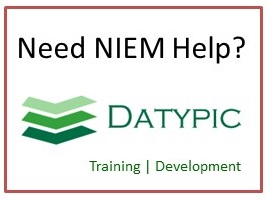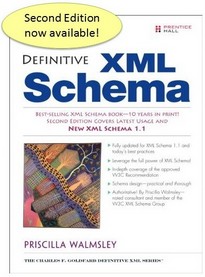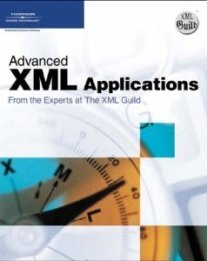gml:TopoComplex
gml:TopoComplex is a collection of topological primitives. Each complex holds a reference to its maximal complex (gml:maximalComplex) and optionally to sub- or super-complexes (gml:subComplex, gml:superComplex). A topology complex contains its primitive and sub-complex members.
Element information
Namespace: http://www.opengis.net/gml/3.2
Schema document: external/ogc/gml/3.2.1/topology.xsd
Type: gml:TopoComplexType
Properties: Global, Qualified
Content
- Sequence [1..1]
- gml:metaDataProperty [0..*]
- gml:description [0..1]The value of this property is a text description of the object. gml:description uses gml:StringOrRefType as its content model, so it may contain a simple text string content, or carry a reference to an external description. The use of gml:description to reference an external description has been deprecated and replaced by the gml:descriptionReference property.
- gml:descriptionReference [0..1]The value of this property is a remote text description of the object. The xlink:href attribute of the gml:descriptionReference property references the external description.
- gml:identifier [0..1]Often, a special identifier is assigned to an object by the maintaining authority with the intention that it is used in references to the object For such cases, the codeSpace shall be provided. That identifier is usually unique either globally or within an application domain. gml:identifier is a pre-defined property for such identifiers.
- gml:name [0..*]The gml:name property provides a label or identifier for the object, commonly a descriptive name. An object may have several names, typically assigned by different authorities. gml:name uses the gml:CodeType content model. The authority for a name is indicated by the value of its (optional) codeSpace attribute. The name may or may not be unique, as determined by the rules of the organization responsible for the codeSpace. In common usage there will be one name per authority, so a processing application may select the name from its preferred codeSpace.
- gml:maximalComplex [1..1]The property elements gml:subComplex, gml:superComplex and gml:maximalComplex provide an encoding for relationships between topology complexes as described for gml:TopoComplex above.
- gml:superComplex [0..*]The property elements gml:subComplex, gml:superComplex and gml:maximalComplex provide an encoding for relationships between topology complexes as described for gml:TopoComplex above.
- gml:subComplex [0..*]The property elements gml:subComplex, gml:superComplex and gml:maximalComplex provide an encoding for relationships between topology complexes as described for gml:TopoComplex above.
- gml:topoPrimitiveMember [0..*]The gml:topoPrimitiveMember property element encodes for the relationship between a topology complex and a single topology primitive.
- gml:topoPrimitiveMembers [0..1]The gml:topoPrimitiveMembers property element encodes the relationship between a topology complex and an arbitrary number of topology primitives.
from type gml:AbstractGMLTypefrom group gml:StandardObjectProperties
Attributes
| Name | Occ | Type | Description | Notes |
|---|---|---|---|---|
| gml:id | [1..1] | xsd:ID | The attribute gml:id supports provision of a handle for the XML element representing a GML Object. Its use is mandatory for all GML objects. It is of XML type ID, so is constrained to be unique in the XML document within which it occurs. | from type gml:AbstractGMLType |
| isMaximal | [0..1] | xsd:boolean | Default value is "false". | |
| aggregationType | [0..1] | gml:AggregationType | from group gml:AggregationAttributeGroup |
Used in
- Type gml:ArrayAssociationType (Element gml:members)
- Type gml:TopoComplexPropertyType (Elements gml:topoComplexProperty, gml:subComplex, gml:superComplex, gml:maximalComplex)
Substitution hierarchy
- gml:AbstractObject
- can be substituted with gml:AbstractGML
- can be substituted with gml:AbstractTopology
- can be substituted with gml:TopoComplex
- can be substituted with gml:AbstractTopology
- can be substituted with gml:AbstractGML
Sample instance
<gml:TopoComplex gml:id="ID"> <gml:metaDataProperty> <gml:GenericMetaData>Any text, intermingled with: <!--any element--> </gml:GenericMetaData> </gml:metaDataProperty> <gml:description>string</gml:description> <gml:descriptionReference/> <gml:identifier codeSpace="http://www.example.com/">string</gml:identifier> <gml:name>string</gml:name> <gml:maximalComplex> </gml:maximalComplex> <gml:superComplex> </gml:superComplex> <gml:subComplex> </gml:subComplex> <gml:topoPrimitiveMember> <gml:Node gml:id="ID"> <gml:metaDataProperty>... </gml:metaDataProperty> <gml:description>string</gml:description> <gml:descriptionReference/> <gml:identifier codeSpace="http://www.example.com/">string</gml:identifier> <gml:name>string</gml:name> <gml:container>... </gml:container> <gml:directedEdge>... </gml:directedEdge> <gml:pointProperty>... </gml:pointProperty> </gml:Node> </gml:topoPrimitiveMember> <gml:topoPrimitiveMembers> <gml:Node gml:id="ID"> <gml:metaDataProperty>... </gml:metaDataProperty> <gml:description>string</gml:description> <gml:descriptionReference/> <gml:identifier codeSpace="http://www.example.com/">string</gml:identifier> <gml:name>string</gml:name> <gml:container>... </gml:container> <gml:directedEdge>... </gml:directedEdge> <gml:pointProperty>... </gml:pointProperty> </gml:Node> </gml:topoPrimitiveMembers> </gml:TopoComplex>



